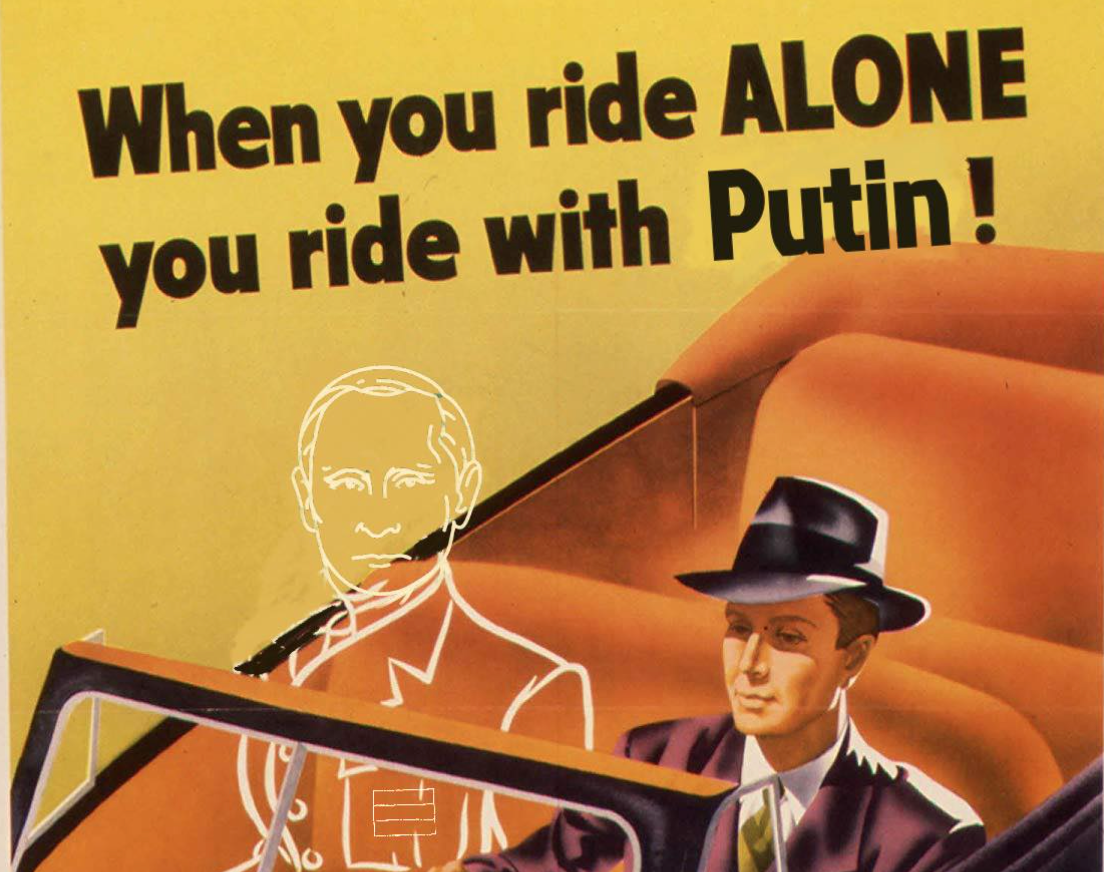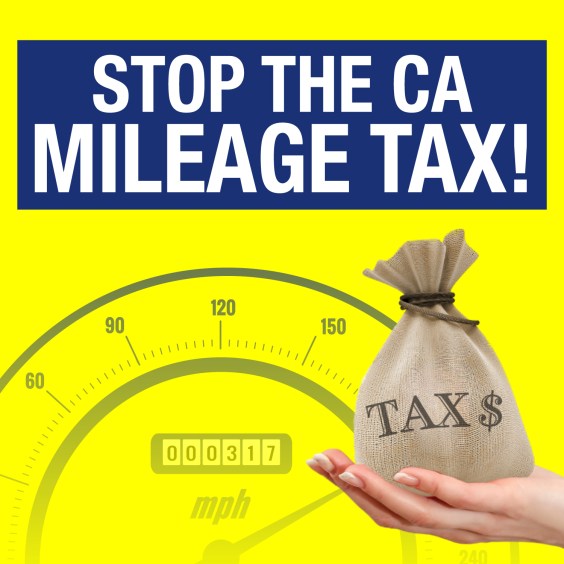President Biden's announcement that the U.S. will stop importing Russian oil has sustainable transportation advocates urging leaders to take action before surging gas prices overwhelm American families — by giving them access to the active and shared transportation they needed long before the nation's latest oil crisis.
In a series of remarks on Tuesday, Biden acknowledged that domestic gas prices will "definitely go up" as a result of the embargo, but defended the move as necessary to "deal another powerful blow to [President Vladimir] Putin's war machine" as Russia continues its widely condemned attack on the Ukraine.
Experts expect the move will drive average U.S. gasoline prices above $5 a gallon for the first time in history, and residents of some cities, like Richmond, Calif., are already seeing prices as high as $6.99. If those prices proliferate across the country, they'll shatter the previous national record of $5.20 (adjusted for inflation) set during the 2008 financial crisis.
Biden assured Americans that he would "do everything I can to minimize Putin's price hike at home," but the President didn't comment on what he'd do to make life less painful for people outside automobiles — which would make it possible for more Americans to choose travel modes that don't require a drop of gasoline at all.
Why I’m cycling more and why we need more accessible, seamless, equitable public transportation. pic.twitter.com/jbl3GwhVzB
— Jovanka Beckles, MBA (@JovankaBeckles) March 5, 2022
That omission irked sustainable transportation advocates, many of whom pointed out that America has a long history of discouraging car usage during wartime.
During World War II, the Office of Price Administration urged residents to carpool in order to conserve badly needed gasoline and rubber for U.S. troops, a campaign that spawned a famous propaganda poster emblazoned with the tagline, "When you ride alone, you ride with Hitler."
Several advocates updated that imagery for the current crisis, with additional encouragement to motorists to consider ditching driving altogether in favor of other modes whenever they can.
Fellow Americans: Pressure Putin to end Ukraine invasion by supporting the U.S. boycott of Russian oil. Drive less, which will help keep fuel affordable for those who truly need to drive, and make the boycott politically sustainable. Thanks for doing your part!
— Streetsblog Chicago (@streetsblogchi) March 8, 2022
Image: Steph Reid pic.twitter.com/6DLOt6PMfG
During the 1973 oil crisis, when OPEC — aka the Oil and Petroleum Exporting Countries — proclaimed an embargo upon countries that supported Israel during the Yom Kippur War, President Nixon also called on Americans to share rides.
"How many times have you gone along the highway or the freeway, wherever the case may be, and see hundreds and hundreds of cars with only one individual in that each?" Nixon said in an address to the nation about his "Project Independence" initiative to reduce reliance on foreign energy. "This we must all cooperate to change. ... We are running out of energy today because our economy has grown enormously and because in prosperity what were once considered luxuries are now considered necessities."
Nixon even introduced legislation that would have allowed the federal government to lower speed limits on highways to 50 miles per hour, pointing out that slowing drivers down just a bit could save the country 20,000 barrels of oil every day; he eventually succeeded in temporarily capping limits at 55 miles per hour.
Reap rewards in lowered injuries and deaths immediately. Long term, obviously, it is about investing in non-auto, non-fossil fuel options. But if you want to help people today deal with rise in gas prices, this is a good start.
— Tara Goddard 🚸 (@DrTaraGoddard) March 7, 2022
But even America's most aggressive efforts to curb wartime oil dependence paled in comparison to countries like the Netherlands, which has a long history of responding to oil shortages by banning cars altogether.
In 1939, 1946 and 1956, and again during the 1973 OPEC embargo, Dutch leaders implemented a series of "car-free Sunday" events, which restricted most private motor vehicle traffic throughout the country. Images of Netherlanders picnicking on empty highways and roller skating on auto-free arterials proliferated around the world.
The events also became a pivot point in the movement to build out Holland's then-scarce active transportation infrastructure, in part because the anti-traffic-violence advocates behind 1972's Stop de Kindermoord (Stop the Child Murder) protests leveraged them to highlight how well the country could function without excessive automobile use.
Oh boy, NPR and media: Yes, price of gas is up. But...
— Mary Babic (@MaryBabic) March 8, 2022
1. It's hurting working families who are compelled to rely on cars because we've failed to
2. invest in alternatives (public transit, walkable landscapes, etc)
3. it's only now beginning to reflect the REAL cost to all of us
America, which had a bike boom of its own in the early '70s — but no accompanying mass movement to end car crash deaths — experienced just a 2-percent reduction in national vehicle miles travelled during the OPEC crisis, and VMT rebounded to pre-crisis levels within 18 months. Nixon's speed limit cap helped slash car crash rates by 18 percent in a single year, though that number had also rebounded by 1976 as drivers returned to the road, and deaths soared among walkers and cyclists in particular.
The Netherlands, meanwhile, began making the human-centered policies and street infrastructure it explored during the oil crisis permanent, and experienced a steep downward trend in road deaths that hasn't stopped since.
Every oil crisis is an opportunity to reduce our oil dependence with proven methods: running more trains, more buses, and building housing near transit. Not gonna happen by waiting patiently for every Ford F-150 driver to go electric https://t.co/7OIaDak2mp
— Adrian Pietrzak (@zoningwonk) March 7, 2022
As the threat of high gas prices looms, sustainable transportation advocates are calling on Biden to do more than either Nixon or his Dutch counterparts to reduce oil demand and encourage mode shift — though they acknowledge that doing it will require an even steeper uphill batter today.
In the years since the last fuel cost spike in 2008 — which helped spur a rare and short-lived nosedive in the sale of pick-ups and SUVs — the average American automobile has swelled to gargantuan proportions, raising the stakes of the gas price debate nationwide and deterring even more potential pedestrians from attempting to walk among an increasingly lethal vehicle fleet.
Decades of bad federal transportation policy has expanded city roads, too, making them increasingly hostile to anyone who wants to cross them on foot or wheelchair. And glacial or nonexistent efforts to create separated spaces for people to walk and roll have even further stymied national mode shift.
US drivers have been heavily subsidized for decades. https://t.co/WwghCFhf7f
— American Fietser (@AmericanFietser) March 8, 2022
Transit has also been gutted, with the notable exception of the unprecedented wave of emergency funding that flowed to agencies during COVID-19, though it still wasn't enough to to make up for roughly a century of systemic disinvestment in shared modes. In most American cities today, riding buses and trains is artificially expensive, wildly and needlessly inconvenient, and shamefully inadequate to meet our daily needs — a status quo that only got worse when a deadly airborne virus forced millions to stay home or choose other ways to get around.
Automobile travel, meanwhile, has enjoyed virtually limitless federal subsidy, even as the Highway Trust Fund falls further and further into bankruptcy and driving remains the leading contributor to U.S. climate emissions, traffic deaths, environmental racism, and more.
Yes, the latest oil crisis is sending short-term shockwaves through the finances of American motorists. But sustainable travelers have been mired in crisis for their entire traveling lives — and it’s long past time to rescue them.
Depending on how old a kid is, this may be about what a parent/kid combo will pay for for taking public transit. Perhaps transit users need to complain more. https://t.co/vbH5UmHxvY
— Maris Zivarts (@emveezee) March 7, 2022
As the Russian offensive continues, American cities and towns urgently need to employ the lessons of the past to curb car usage and drastically reduce our dependence on oil now.
Speed limit caps, carpooling incentives and car-free days can all help. So can the sort of tactical urbanist interventions that not enough American cities deployed during the pandemic to give people safe routes to walk and roll.
Done at scale, these things can make a massive and immediate difference — especially if they're done in concert with other quick-build traffic calming efforts, operational support to transit agencies, free and subsidized fares across all shared modes, and virtually anything else transportation leaders can think of to make sustainable transport safe, affordable, accessible, and attractive to the unique communities they serve.
I shudder to contemplate the cobalt, nickel, and lithium wars of the generations to come. We need to reduce auto-dependency as we shift to electric cars. https://t.co/ruKden8XmB
— Bill Schultheiss (@schlthss) March 7, 2022
Of course, all of those things would have been helpful long before Putin's forces ever stepped foot in Ukraine. And if we're serious about insulating ourselves the next oil crisis – or the lithium, cobalt and nickel crises that will inevitably follow if America simply trades gasoline dependence for electric vehicle dependence — we need to start now, and we need to think long term.
people should be less mad about gas prices and more mad that they can’t live in their cities without relying on cars
— sam 🍊🏡 (@lj_sam_) March 6, 2022






